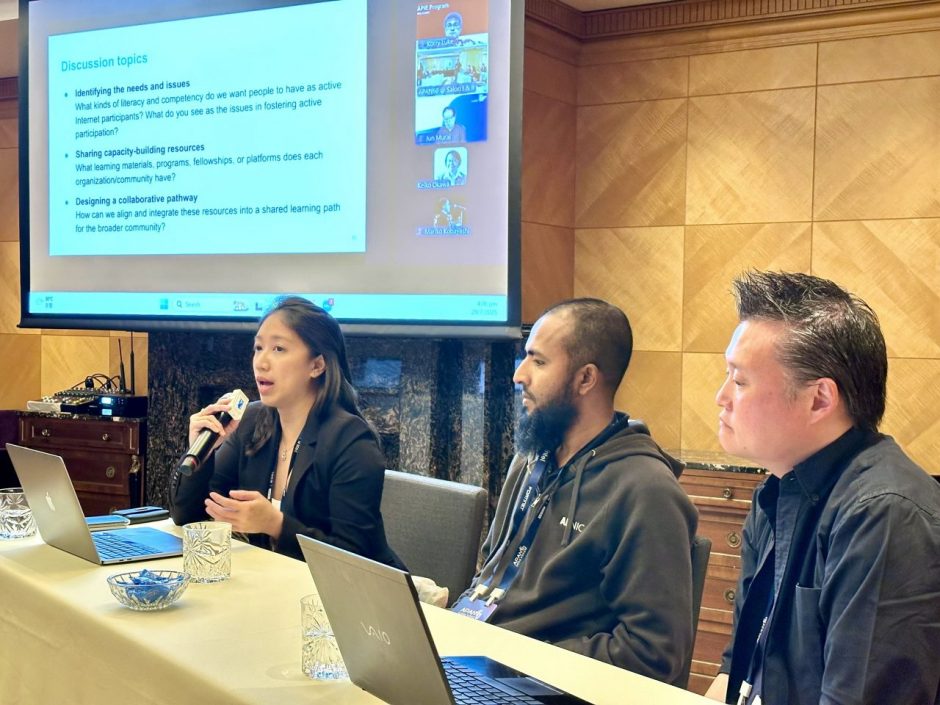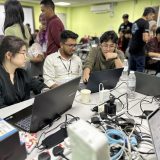On July 29, 2025, SOI Asia hosted the panel session “Participating in the Internet: Internet Governance for Everyone” at the Asia Pacific Advanced Network Conference 60 (APAN60) in Hong Kong. The 90-minute discussion brought together prominent voices in Internet governance to explore how capacity-building initiatives can foster meaningful participation in shaping the Internet’s future.
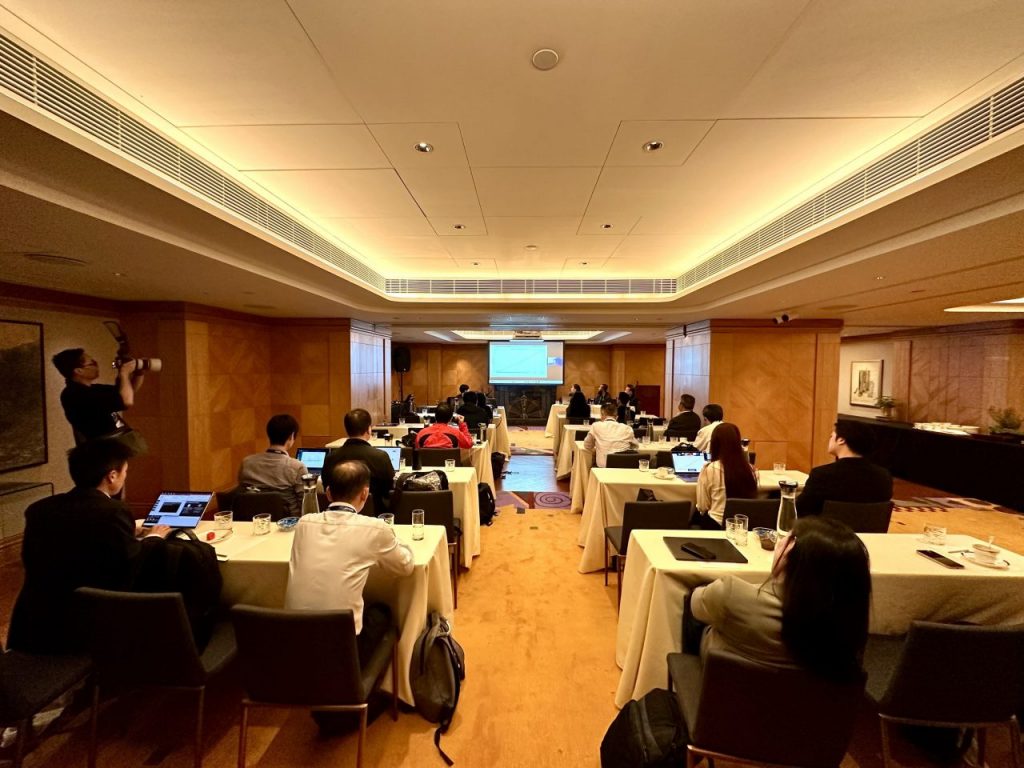
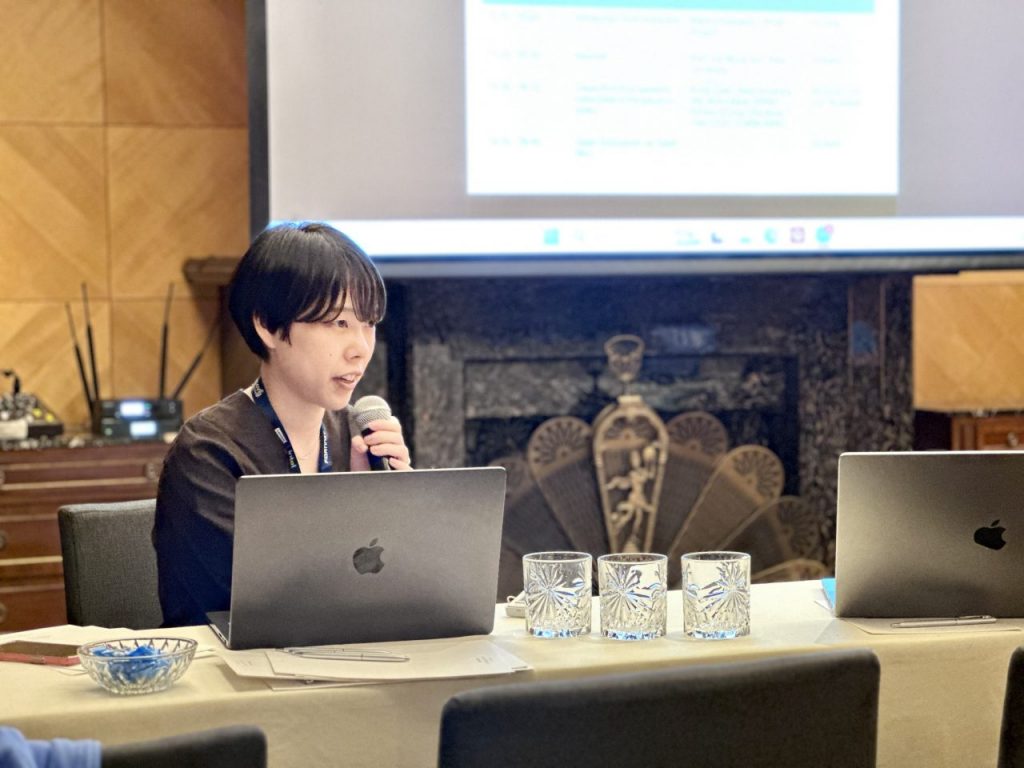
The panel was co-chaired by Ms. Mariko Kobayashi (WIDE Project) and Mr. Korry Luke (Keio University) and featured:
- Jun Murai – Senior Advanced Research Professor, Keio University / Founder, WIDE Project (online participation)
- Yien Chyn Tan – Director of Stakeholder Engagement, ICANN APAC
- Md. Abdul Awal – Network Analyst and Trainer, APNIC
- Edmon Chung – CEO, DotAsia
Identifying the Needs and Issues
The session opened with Prof. Jun Murai’s overview of how the Internet works—its open, distributed, and multi-stakeholder nature—and the evolving ways it connects people, from global satellite coverage to experimental initiatives. Korry Luke followed introducing the new SOI Asia online course Participating in the Internet.
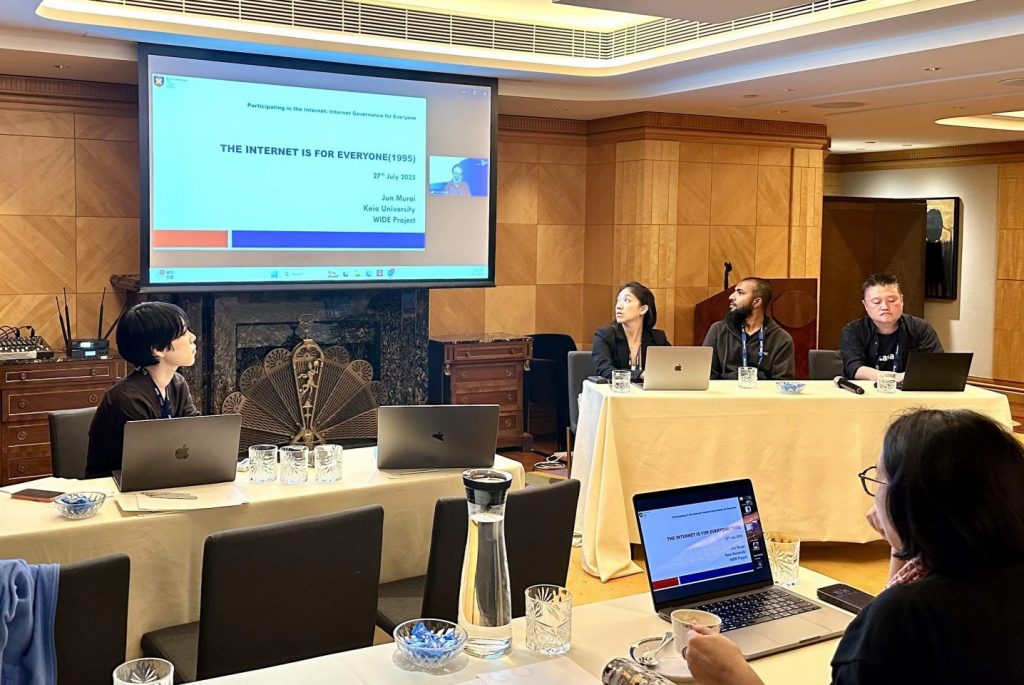
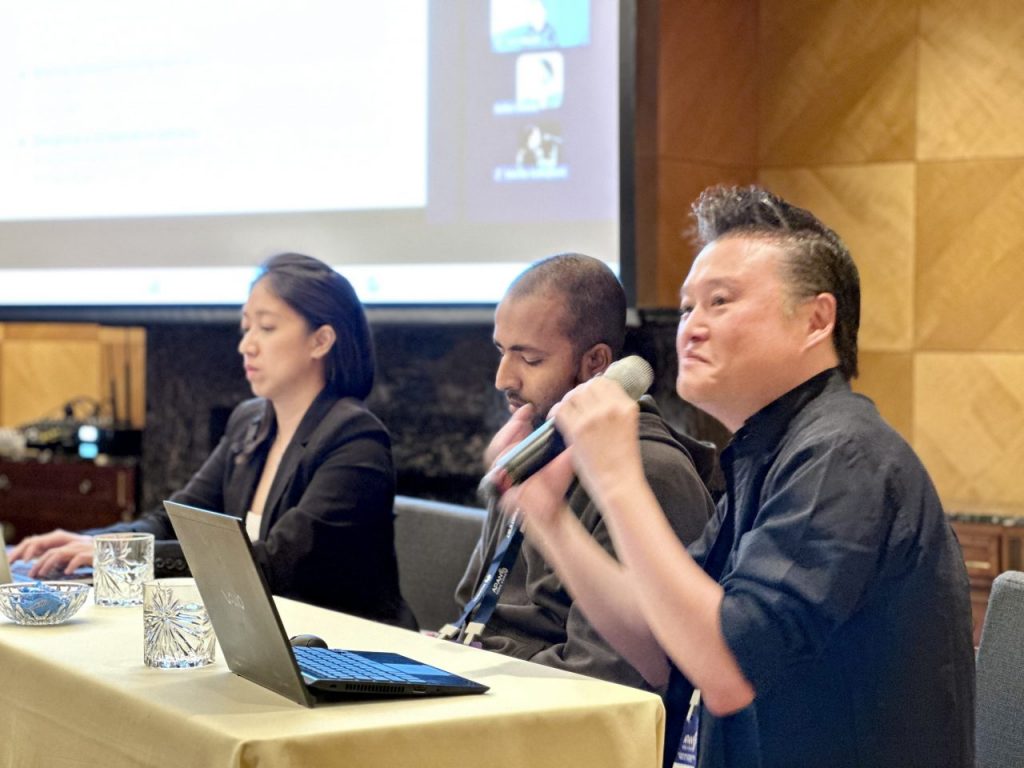
Panelists then explored the skills and literacy needed for active Internet participation. Edmon Chung started highlighting the importance of understanding cultural characteristics in Asia as a starting point for meaningful engagement. Md. Abdul Awal shared insights from APNIC’s experience in fostering a collaborative culture across its community. Yien Chyn Tan offered perspectives from Southeast Asia, noting encouraging progress in engagement over the past year while emphasizing the need to broaden outreach beyond youth audiences.
Sharing Capacity-Building Resources
In the second part of the discussion, panelists introduced the capacity-building programs their organizations offer. Awal described APNIC’s hands-on training initiatives and commended SOI Asia’s APIE Program as a unique opportunity for younger students to gain practical Internet engineering skills. Chung reflected on the fact that the challenge is not a shortage of fellowships or programs, but rather a need to generate sustained interest and ensure long-term engagement. He emphasized the value of alumni networks, opportunities for policy involvement, and creating pathways for organizations to welcome fresh voices into decision-making spaces.
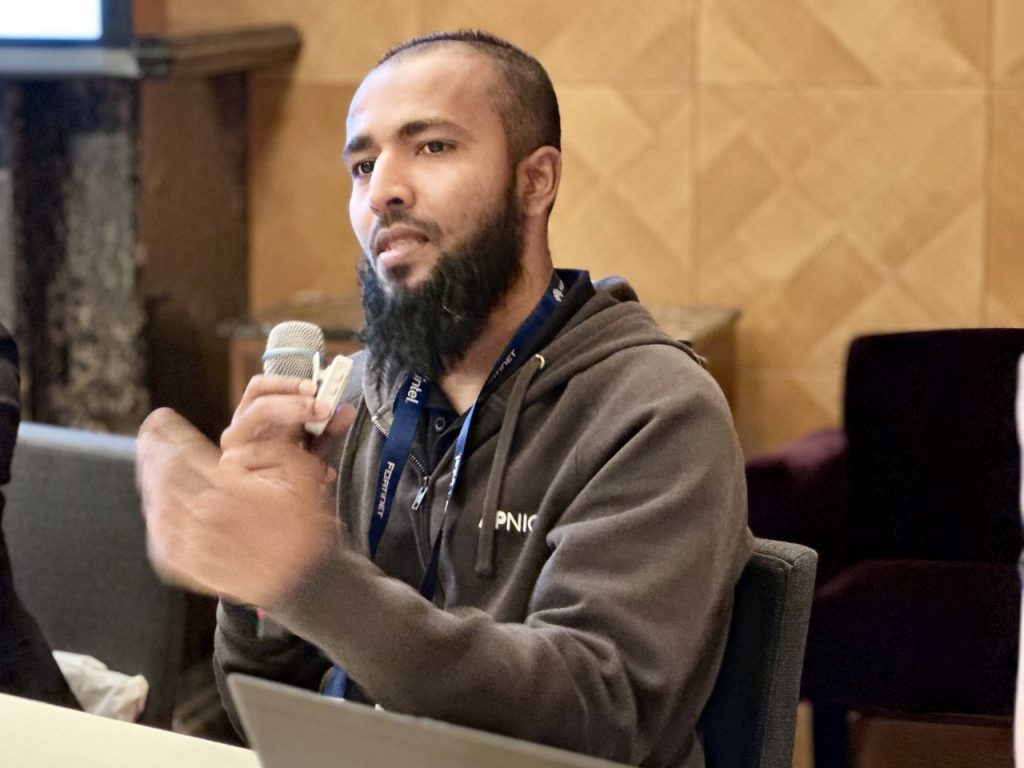
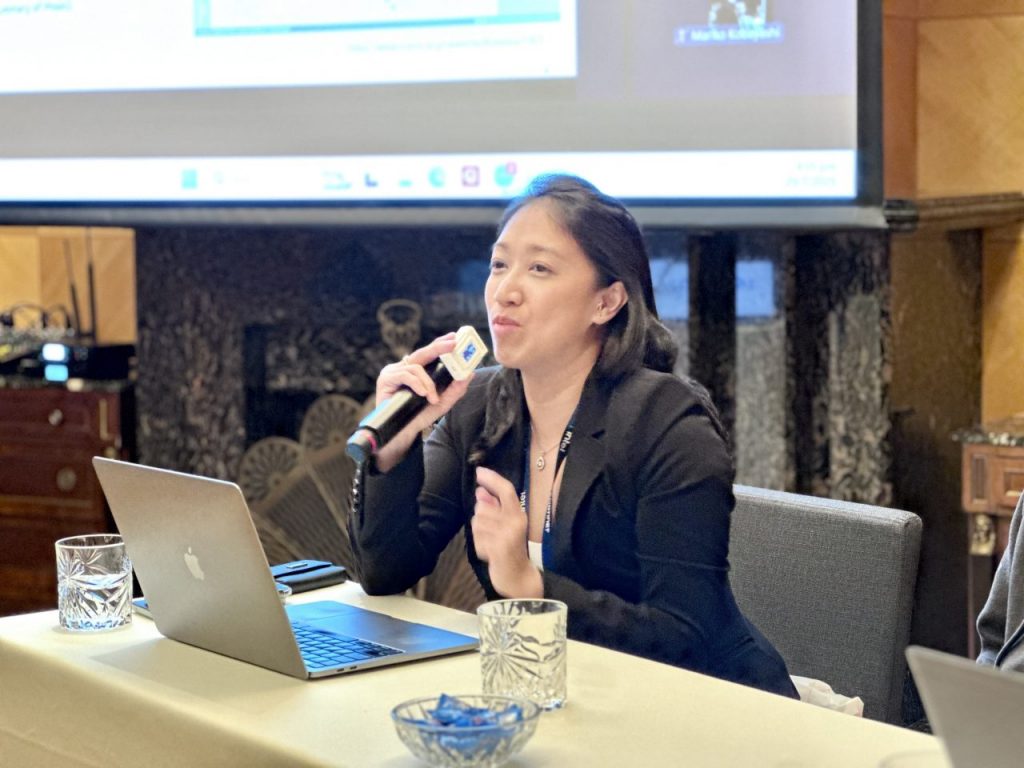
Tan outlined the range of ICANN-supported programs and acknowledged that the abundance of opportunities can sometimes leave learners uncertain about where to begin. She called for closer collaboration among stakeholders to help participants navigate these options more effectively, highlighting the importance of language accessibility and the need to involve the private sector in addressing funding and resource challenges.
Designing a Collaborative Pathway
The final segment of the session focused on how these diverse efforts could be better integrated into a cohesive, collaborative pathway for Internet governance participation. Drawing on their experience, Prof. Murai and Mr. Luke emphasized the importance of aligning regional strengths to support participants over the long term. Ms. Kobayashi proposed that the community should consider a “career ladder” approach—enabling individuals to progress from initial engagement to more advanced, sustained roles in the Internet governance ecosystem.
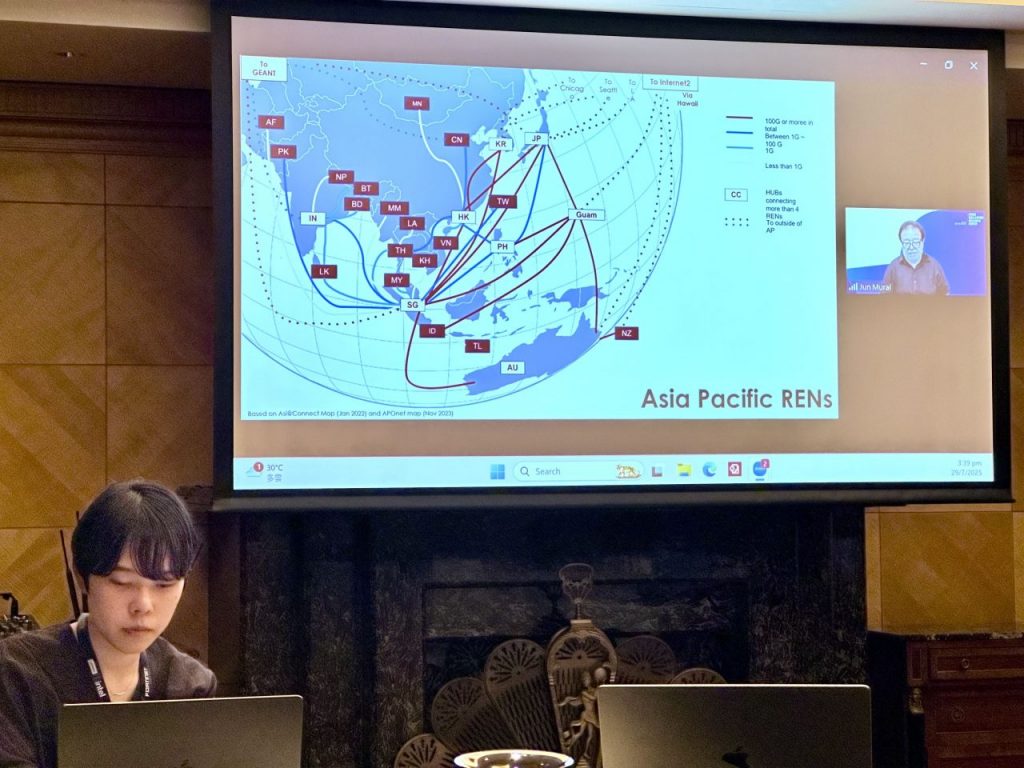
The discussion concluded with a shared understanding that collaboration, accessibility, and retention are key to building a stronger Internet governance community in the Asia-Pacific.
Looking Ahead
The discussions revealed both shared priorities and practical steps toward stronger collaboration in the Asia-Pacific Internet governance community. Participants agreed on the importance of aligning resources, addressing barriers such as language and access, and creating clear pathways for ongoing participation.
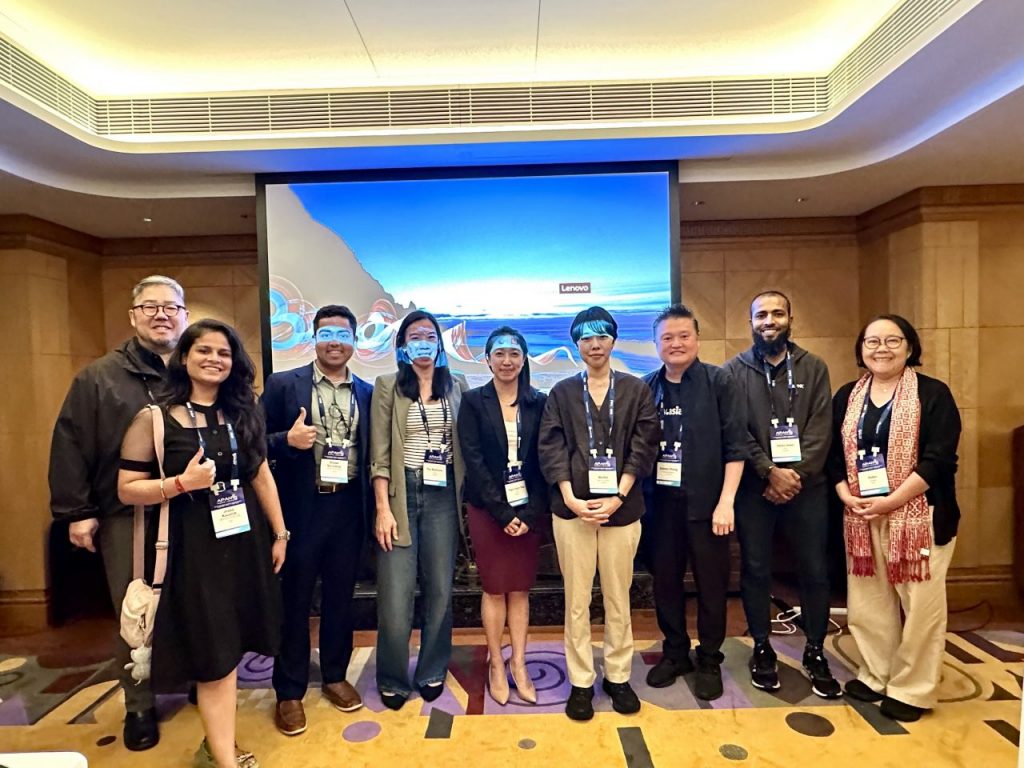
As Prof. Murai noted, the Asia-Pacific has a unique role to play not only within the region but also in shaping global Internet governance. This conversation is just the beginning of a longer, collaborative journey.

